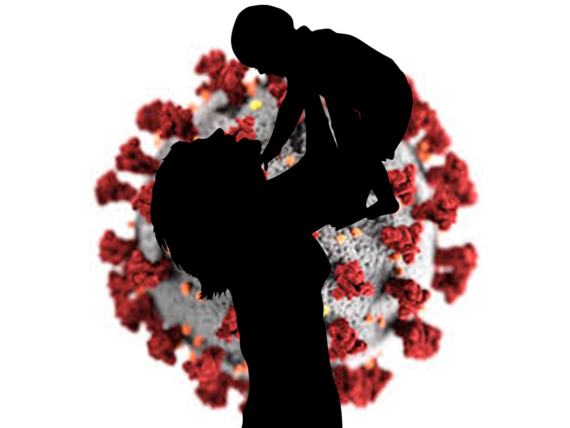by Melanie Martin
Anthropology faculty Melanie Martin and Dan Eisenberg, along with Eleanor Brindle (Center for Studies in Demography and Ecology, CSDE) are collaborating with researchers at the University of Idaho and Washington State University to study maternal-infant transmission and immune responses to the SARS-CoV-2 virus. Among the many unknowns of the novel coronavirus, it remains unclear how likely infants and children are to contract the virus from infected caregivers, and if differences in infectious outcomes in children and adults are related to children’s immature immune responses or cross-immunity. Uncertainties about maternal-infant transmission has created particular anxiety for breastfeeding mothers. While to date there is little evidence that the virus is transmitted through breastfeeding, any such risk should be weighed against transmission risks to non-breastfeeding infants and other household family members, as well as the benefits of antibodies in breastmilk that may further protect infants from infection.
To help in answering these questions, Martin and colleagues are recruiting families from Washington and Idaho via a Citizen Science Initiative, and will collect biomarker data using minimally-invasive no-contact protocols to adhere to social distancing guidelines. The research is being conducted in two arms. The first, the COVID-19 and Breastfeeding Study, is a short-term study led by UI and funded by the Bill and Melissa Gates Foundation, and will collect evidence to determine if the virus can be transmitted via breastfeeding. The second arm, currently supported by an NSF RAPID grant and a CSDE Seed grant, expands off of this initiative with a 2-month study to examine differences in antibody responses and symptoms over time in breastfeeding and non-breastfeeding mother-infant dyads and other family members.
The research team rapidly leveraged existing relationships and areas of expertise in order to develop the study in real-time, under the ever-changing conditions of the pandemic. Dr. Martin and her collaborators Courtney Meehan (WSU) and Michelle McGuire (UI) have worked with families in the U.S. and globally to study cultural and ecological variation in breastfeeding practices and milk composition. This work has included work with the ethnic populations of the Tsimane (Bolivia), the Qom/Toba (Argentina), and the Aka (Central African Republic). Brindle, Director of the UW Biodemography Lab (where Martin also teaches an undergraduate lab methods course), has vast expertise in developing minimally-invasive methods for biomarker collection, and will oversee enzyme immunoassay of SARS-CoV-2 specific antibodies in capillary blood spots. Eisenberg is the PI of the Molecular Anthropology Lab, and will oversee qPCR analysis of viral RNA. Through their collective experiences, the research team has been able to quickly adapt field-tested methods for minimally-invasive sample collection to the current challenges. They have further drawn from their past experiences to tailor data collection to consider infant feeding needs, considerations for children’s assent and discomfort, maternal breastfeeding complications (e.g. mastitis), and family dynamics that may influence transmission.
